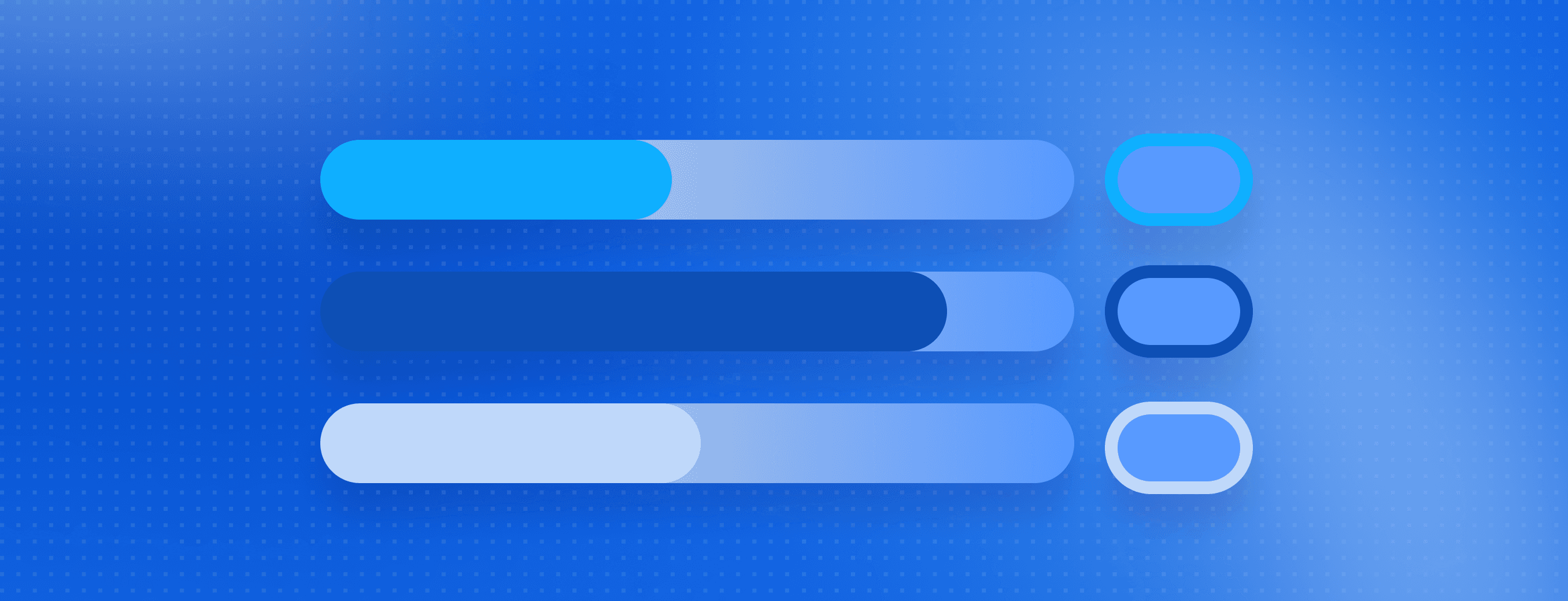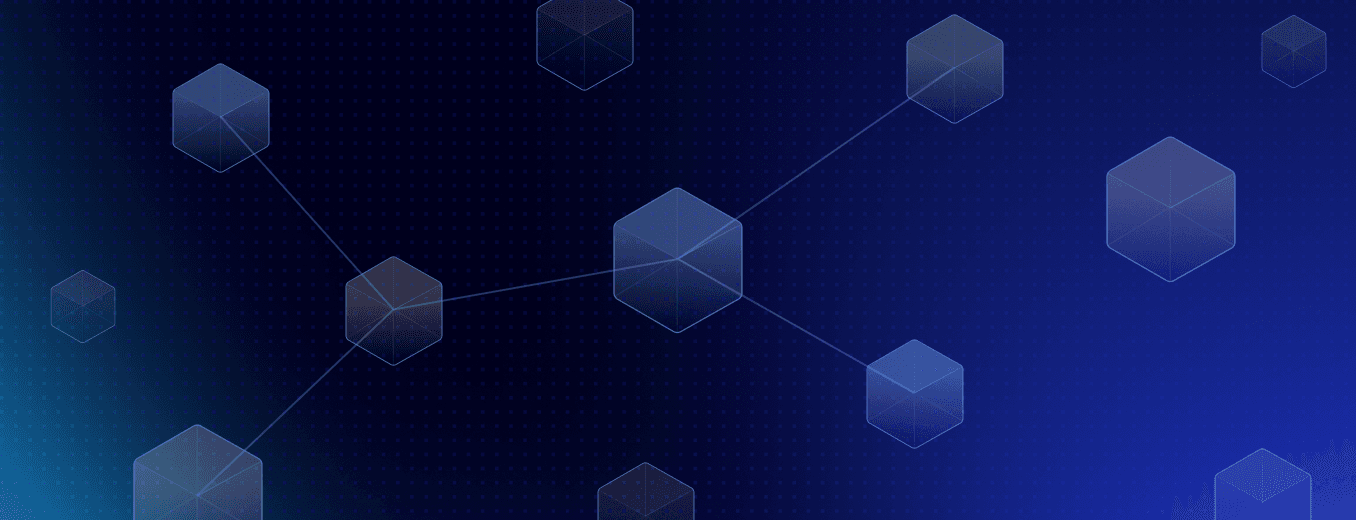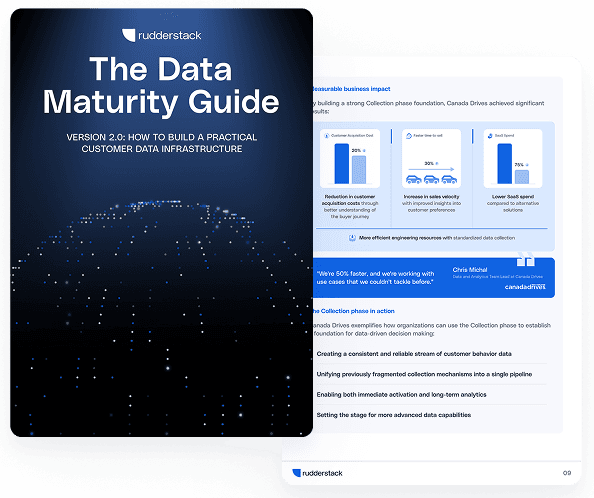RudderStack: The essential customer data infrastructure

As businesses increasingly rely on precise, real-time insights, the ability to collect, transform, govern, and deliver customer data effectively is a critical competitive advantage. However, as companies grow, they often find themselves wrestling with a complex web of point integrations, inconsistent data definitions, and siloed information that creates bottlenecks for engineers and limits the value teams can extract from their customer data.
This is where proper customer data infrastructure becomes essential. Not just as a collection of tools, but as a comprehensive foundation that supports the entire data lifecycle from collection to activation. Let's explore how RudderStack's customer data infrastructure products work together to solve these challenges.
What is customer data infrastructure?
Customer data infrastructure (CDI) refers to the foundational technologies and systems that enable businesses to reliably collect, transform, and deliver customer data across their organization. Unlike traditional customer data platforms that store copies of your data in their cloud, true CDI focuses on providing the pipes, connectors, and processing capabilities that enable data to flow to where it creates the most value, whether that's your data warehouse, analytics tools, or operational systems.
RudderStack's approach to customer data infrastructure consists of five core components that work seamlessly together:
1 | Event Stream: The foundation for real-time data collection
At the heart of effective customer data infrastructure is the ability to collect high-quality event data from every customer touchpoint. RudderStack's Event Stream provides comprehensive capabilities for gathering this critical behavioral data:
- Extensive SDK coverage: With 16+ SDKs spanning web, mobile, server-side, and IoT devices, Event Stream ensures you can collect data from every digital touchpoint in your customer journey
- Unified identity resolution: Automatically tracks both anonymous and identified users, maintaining consistent user profiles as visitors move from unknown to known status
- Standardized schema enforcement: Ensures data quality at the collection point through consistent event naming and property structures
- Privacy-first architecture: Provides granular control over what user information to collect and where to store it, with built-in support for cookieless environments
Event Stream serves as the foundation for understanding customer behavior in real-time, capturing every click, view, and interaction across your digital properties without storing your data in yet another third-party system.
2 | Data governance: Ensure trust and consistency from the start
Customer data is only as valuable as it is trustworthy—and trust begins with governance. RudderStack makes it easy to define, enforce, and monitor standards across your entire data pipeline:
- Tracking plans as code: Define and version tracking plans alongside your development workflows, with schema enforcement at the SDK and ingestion layer
- Real-time validation: Catch invalid or noncompliant events immediately at the edge to prevent bad data from propagating
- Typed SDKs and observability: Auto-generated SDKs ensure tracking consistency, while observability tools provide transparency into data quality across sources and destinations
- Governance at every stage: From collection through transformation and delivery, RudderStack enforces standards and surfaces violations proactively
Strong governance helps data teams reduce fire drills, improve data quality, and maintain trust across engineering, product, and business teams. It’s a foundational pillar of intelligent customer data infrastructure.
3 | Transformations: Clean and enhance data in transit
Raw event data often requires processing before it becomes truly valuable. RudderStack Transformations provides powerful capabilities to modify and enhance data as it flows through your infrastructure:
- Flexible programming options: Transform event payloads using either JavaScript or Python, depending on your team's preference and use case
- Programmatic control: Create, update, and manage transformations via API for integration with your existing development workflows
- Pre-built templates: 19 quickstart templates for common use cases like PII masking, data enrichment, and event filtering
- Code reusability: Save and organize transformation code in libraries to maintain consistency and reduce duplication
- Developer workflow integration: Support for GitHub-based version control and deployment
Transformations ensure that data quality issues are addressed at the source, not after they've propagated throughout your systems. This means cleaner data in your warehouse and downstream tools, without requiring custom ETL processes or data cleanup projects.
4 | Reverse ETL: Activate insights across your tech stack
The true value of customer data emerges when it influences actual customer experiences. RudderStack's Reverse ETL capabilities turn your data warehouse into an activation hub:
- Flexible syncing methods: Support for both upsert and mirror modes, allowing you to either update records incrementally or maintain perfect consistency with your source data
- Orchestration integration: Manage Reverse ETL jobs from your existing workflow tools like Airflow or dbt
- Intuitive mapping interface: Visual data mapper simplifies connecting warehouse columns to destination fields
- End-to-end governance: Seamless integration with RudderStack's transformation and data quality tools ensures consistent standards throughout the data lifecycle
Reverse ETL bridges the critical gap between analysis and action, ensuring that the valuable customer insights in your data warehouse actually influence customer experiences through your marketing, sales, and service tools.
5 | Integrations: The connective tissue
The final component that brings everything together is RudderStack's extensive integration library:
- 200+ destinations: Connect to virtually any tool in your tech stack, from analytics platforms to marketing automation, CRM, and customer engagement tools
- Fully managed reliability: RudderStack handles all maintenance and ensures reliable delivery without storing your data
- Real-time capabilities: Stream data directly to destinations to support immediate personalization and engagement
- Custom endpoints: Webhook destinations provide a low-code solution for sending events to any custom system or internal service
These integrations serve as the connective tissue of your customer data infrastructure, ensuring that the right data reaches the right destination at the right time.
Why a comprehensive infrastructure approach matters
What makes RudderStack's approach particularly powerful is how these components work together to create a complete customer data infrastructure:
- Event Stream collects behavioral data from all customer touchpoints
- Governance ensures consistency, quality, and compliance from the start
- Transformations clean and enhance that data in transit
- Reverse ETL activates warehouse insights back to customer-facing systems
- Integrations deliver the data to both operational tools and your data warehouse
This end-to-end infrastructure eliminates data silos, reduces engineering maintenance, and ensures consistent customer data across your entire organization.
Getting started with customer data infrastructure
Building proper customer data infrastructure doesn't have to be an all-or-nothing proposition. Many organizations start with a specific pain point–perhaps improving web and mobile tracking with Event Stream, or activating warehouse data with Reverse ETL–and then expand their infrastructure as they realize value.
The key is taking that first step toward treating customer data as a strategic asset that deserves proper infrastructure, not just ad-hoc solutions. With RudderStack's modular approach, you can start where you have the most pressing needs and build from there.
Ready to learn more? Book a demo
Published:
July 31, 2025








